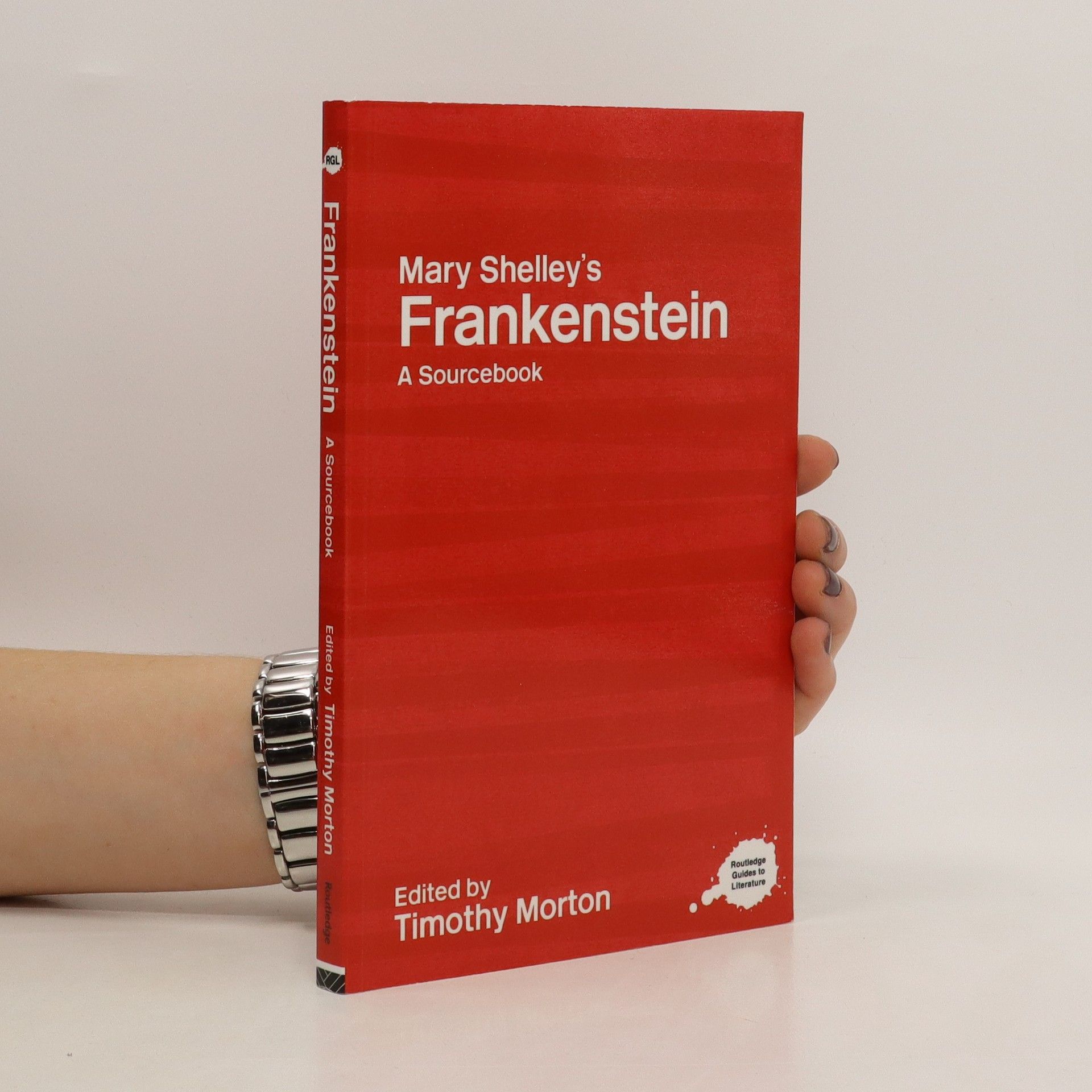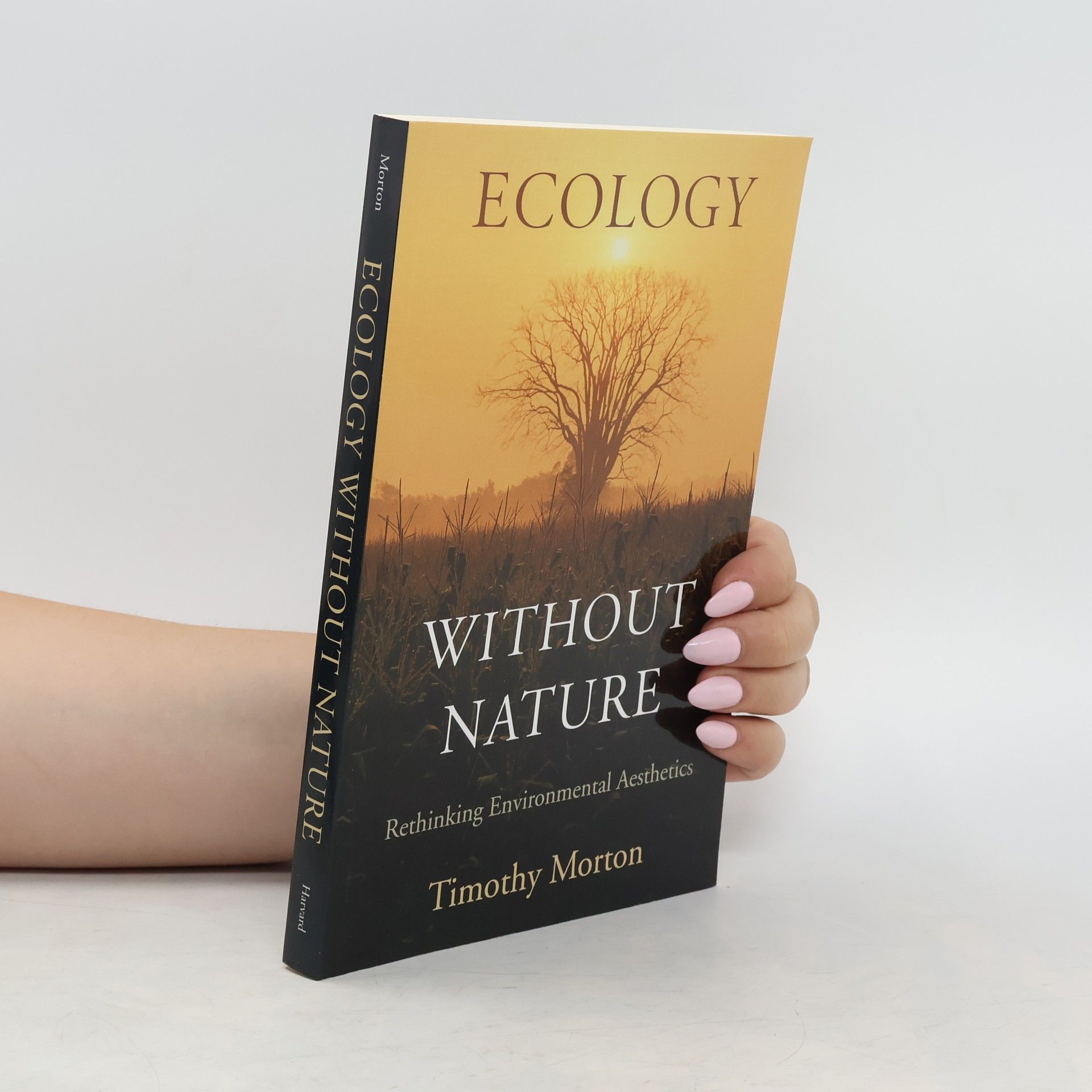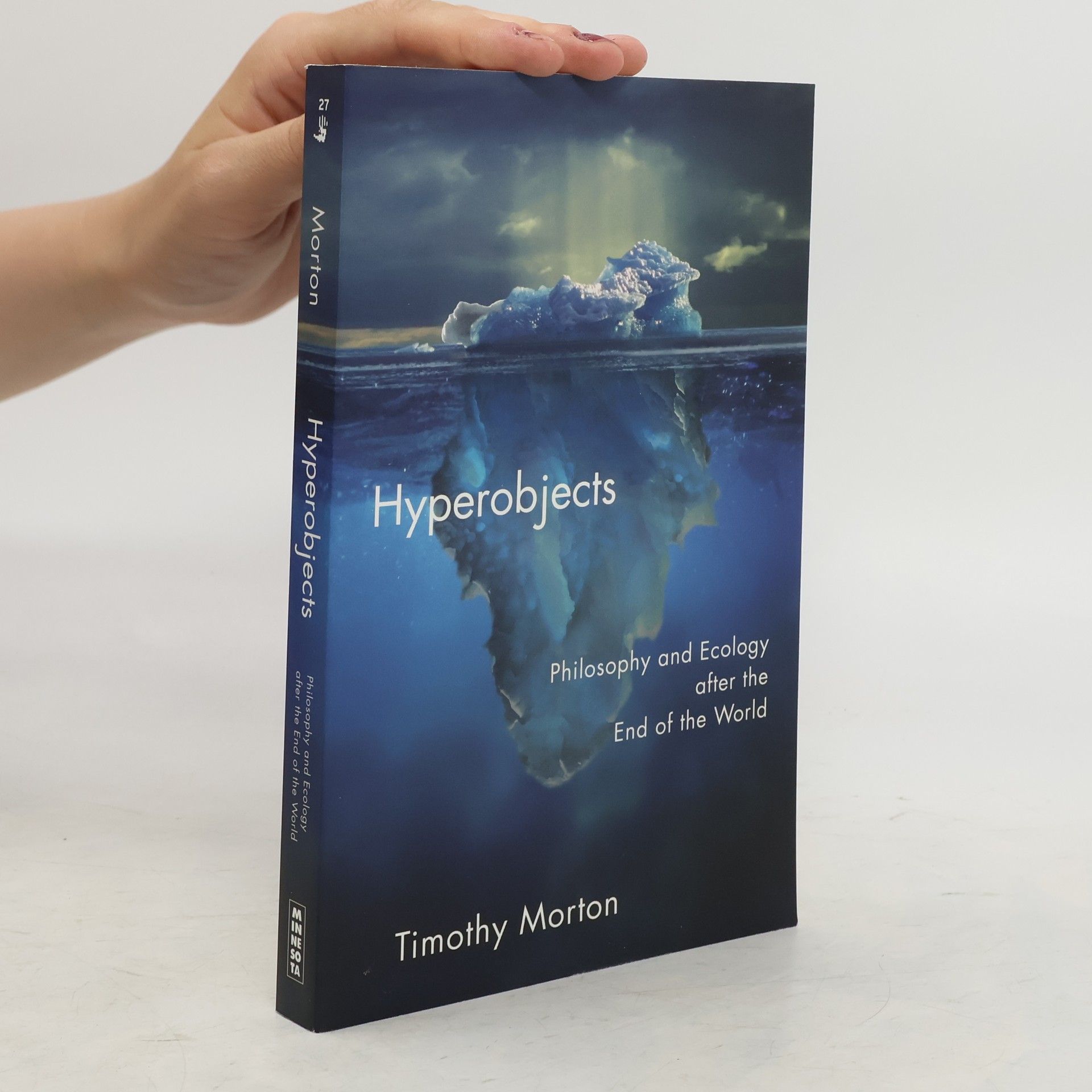Dans cet ouvrage, Timothy Morton explore la relation entre les objets et leur perception, soulignant leur retrait intrinsèque. Il évoque une dimension esthétique où les objets brillent dans l'absence, posant des questions sur leur signification et la perception philosophique de l'esthétique comme royaume du mal.
Timothy Morton Livres
Timothy Morton est un penseur de premier plan dont le travail aborde la relation complexe entre l'humanité et l'écologie dans le monde contemporain. Son écriture, souvent provocatrice et profondément philosophique, explore des concepts tels que les hyperobjets et l'écologie sombre pour recadrer notre existence actuelle. L'analyse de Morton nous met au défi de considérer notre place au sein de l'écosystème et de trouver de nouvelles façons de coexister avec le monde qui nous entoure. Son approche innovante de la crise écologique offre aux lecteurs de nouvelles perspectives et des pistes de réflexion approfondie.







Si l'agent spécial Dale Cooper (Twin Peaks) prenait la plume, voici le livre qu'il pourrait écrire. Car, à l'image du personnage de David Lynch dont le rapport au monde est bouleversé, Timothy Morton propose une philosophie radicale et troublante. Le réchauffement climatique, phénomène irréversible dû à l'activité humaine, a déclenché la sixième extinction de masse. Le constat est simple : nous manquons d'outils conceptuels pour penser cette ère de l'Anthropocène. Et si nous nous affranchissions du concept de Nature ? Si, enfin, nous pensions grand (global plutôt que local) ? Et que dire du maillage, de l'interconnectivité de tout avec tout ? Avec intelligence et humour, Timothy Morton nous libère des discours bien-pensants : adieu écologie verte, économie circulaire et développement durable. Tous ces petits pas pour un monde plus « vert » servent trop souvent à soulager les consciences et verdir les programmes électoraux. Il nous faut changer profondément notre manière de penser, notre manière d'être au monde. De Charles Darwin à Emmanuel Levinas, de William Wordsworth à Percy Shelley, Timothy Morton illustre ses bases théoriques d'exemples aussi concrets que l'art contemporain ou le cinéma de science-fiction - à l'image de Blade Runner ou Solaris. Voici un texte radical qui change notre regard sur le monde, à la fois très accessible et totalement nouveau dans le champ de la philosophie contemporaine.
This study offers a unique exploration of Shelley's ideas, connecting them to themes of diet, consumption, and the human body within the context of nature and culture. It delves into how these elements intersect with Shelley's philosophy, providing fresh insights into his work and its relevance to contemporary discussions on these topics.
The narrative revolves around the profound connection between a seemingly ordinary old teapot and the memories it evokes. Through its daily use, the teapot serves as a vessel for nostalgia, revealing more about the narrator's past than any written record. This exploration highlights themes of memory, the significance of everyday objects, and the stories they carry, inviting readers to reflect on their own experiences and the tangible links to their history.
Being Ecological, with a New Preface by the Author
- 224pages
- 8 heures de lecture
Focusing on ecology, this guide offers a refreshing perspective that avoids overwhelming readers with information or inducing guilt. It aims to engage a broad audience without preaching to those already aware of environmental issues. The new edition presents accessible insights into ecological challenges, making it a valuable resource for anyone looking to understand and engage with environmental topics meaningfully.
Mary Shelley's Frankenstein : a sourcebook
- 220pages
- 8 heures de lecture
Mary Shelley's Frankenstein is one of the most widely studied works of English literature, and Frankenstein's creature is a key figure in the popular imagination.This sourcebook examines Mary Shelley's novel within its literary and cultural contexts, bringing together material *the contexts from which Frankenstein emerged*the novel's early reception*adaptation and performance of the work (from theatre to pop music)*recent criticism.All documents are discussed and explained. The volume also includes offers carefully annotated key passages from the novel itself and concludes with a list of recommended editions and further reading, to allow readers to pursue their study in the areas that interest them most. This sourcebook provides an ideal orientation to the novel, its reception history and the critical material that surrounds it.
The Ecological Thought
- 184pages
- 7 heures de lecture
Argues that various forms of life are connected in a vast, entangling mesh and this interconnectedness penetrates different dimensions of life. This title investigates the profound philosophical, political, and aesthetic implications of the fact that these life forms are interconnected.
In Ecology without Nature, Timothy Morton argues that the chief stumbling block to environmental thinking is the image of nature itself. Ecological writers propose a new worldview, but their very zeal to preserve the natural world leads them away from the "nature" they revere. The problem is a symptom of the ecological catastrophe in which we are living. Morton sets out a seeming paradox: to have a properly ecological view, we must relinquish the idea of nature once and for all. Ecology without Nature investigates our ecological assumptions in a way that is provocative and deeply engaging. Ranging widely in eighteenth-century through contemporary philosophy, culture, and history, he explores the value of art in imagining environmental projects for the future. Morton develops a fresh vocabulary for reading "environmentality" in artistic form as well as content, and traces the contexts of ecological constructs through the history of capitalism. From John Clare to John Cage, from Kierkegaard to Kristeva, from The Lord of the Rings to electronic life forms, Ecology without Nature widens our view of ecological criticism, and deepens our understanding of ecology itself. Instead of trying to use an idea of nature to heal what society has damaged, Morton sets out a radical new form of ecological criticism: "dark ecology."
Humankind
- 224pages
- 8 heures de lecture
A radical call for solidarity between humans and non-humans
Hyperobjects
- 240pages
- 9 heures de lecture
A Quake in Being: An Introduction to Hyperobjects Part I. What Are Hyperobjects? Viscosity Nonlocality Temporal Undulation Phasing Interobjectivity Part II. The Time of Hyperobjects The End of the World Hypocrisies The Age of Asymmetry.

